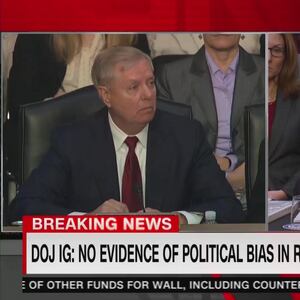The revelations about the Federal Bureau of Investigation’s disingenuous applications under the Foreign Intelligence Surveillance Act (FISA) in its 2016 Crossfire Hurricane operation come as little surprise to long-time watchers of the Bureau.
Forty-seven years after J. Edgar Hoover died, the American people are still living with traces from the culture of impunity he instilled in the Bureau. One would like to think the sensitivity of the FBI’s 2016 campaign investigation would have spurred Bureau agents and executives to conduct a blemish-free probe, knowing that every step might someday be subject to intense scrutiny. Yet the Bureau’s history is replete with abuses, some of the worst occurring when the stakes were highest.
Three examples suffice to illustrate the point.
• On Nov. 12, 1963, Lee Harvey Oswald visited the Dallas Field Office to protest what he considered FBI intimidation. Special agent James Hosty, who had interviewed Oswald’s wife, Marina, was out to lunch so Oswald left a short signed note, saying, in effect, that he would contact the local branch of the American Civil Liberties Union if the harassment didn’t stop. When Hosty returned he read the note and didn’t even bother to put in Oswald’s case file, leaving it in a desk drawer. Hosty considered it harmless “guff.”
Ten days later, after Oswald assassinated President Kennedy, the handwritten note posed an enormous public relations problem. The Bureau was already drawing criticism from the Dallas police department and U. S. Secret Service for not having informed them of Oswald’s presence in Dallas. The visit and protest note promised to put the onus for the assassination on the Bureau.
A self-appointed vigilante named Jack Ruby solved the Bureau’s problem on Nov. 24. After Ruby murdered Oswald as the accused assassin was being transferred from police custody to the county jail, J. Gordon Shanklin, the special agent in charge of the Dallas Field Office, called Hosty in and ordered him to get rid of Oswald’s note. Hosty flushed it down a toilet, and in this manner the FBI destroyed evidence material to Oswald’s state of mind in the days leading up to the assassination.
• In January 1962 the FBI learned that a one-time Communist Party insider and major player in its financial operations, Stanley Levison, had become one of the closest advisers to the Reverend Dr. Martin Luther King, Jr., serving as a ghostwriter, editor, counselor, and fund-raiser. President Kennedy subsequently advised Dr. King in person to sever all relations with Levison. But thanks to electronic surveillance of Levison’s home and office, the Bureau soon reported to the White House that King was not heeding the president’s advice; he had merely switched to using an intermediary to communicate with Levison. In October 1963, with Attorney General Robert F. Kennedy’s express approval, the Bureau extended its electronic surveillance to King himself.
The issue here is not the FBI’s monitoring of the civil rights leader per se, since that is how intrusive surveillance was authorized in those pre-FISA years. Rather, it is what the Bureau did, unbeknownst to the White House, with the information it gleaned about Dr. King’s extra-marital affairs. Smarting from King’s criticism of Bureau practices in the South, and shocked by the reverend’s personal behavior, the FBI began peddling derogatory information about King to journalists it considered friendly, hoping to precipitate a rash of articles that would discredit the civil rights leader. When that tactic failed, and after Dr. King was awarded the Nobel Peace Prize in 1964—but before the ceremony—Hoover escalated the Bureau’s campaign. On Nov. 18, 1964, he openly denounced King as “the most notorious liar in the country.” A few days later, William Sullivan, the director’s favorite deputy, wrote an infamous, anonymous letter to King, threatening to release graphic, damaging information about his amoral behavior unless he stepped down from the civil rights movement. Sullivan arranged for an FBI agent to send the letter with a Miami postmark to King’s home in Atlanta, where it was opened by Coretta Scott King.
Ultimately, the FBI’s effort to disparage Dr. King and persuade him to step aside flopped. But it wasn’t for lack of trying.
• In the wake of the June 1972 break-in at the Democratic National Committee’s headquarters in the Watergate office complex, a faction of FBI executives and agents, led by associate director W. Mark Felt, systematically leaked information about the Bureau’s investigation to reporters from Time magazine and, more famously, the Washington Post. The purpose behind the leaks was to destroy the reputation of the interim FBI director, L. Patrick Gray. By proving to Richard Nixon that Gray could not rule the Bureau with Hoover’s iron hand, the Felt faction aimed to persuade the president to nominate an insider—namely Felt himself—when the time came to name a permanent director.
The scheme came within a whisker of succeeding. By July, a furious president was openly expressing frustration with Gray’s inability to plug leaks embarrassing to the White House. On July 22, Nixon lamented to chief of staff H. R. Haldeman that the administration didn’t have a real “Bureau man” working with it on Watergate. “Well, this guy [Mark Felt] is pushing to try and be our boy, obviously,” Haldeman responded, according to White House tape recordings. Perhaps “we ought to throw some tests at Felt. We could put some real sticky wickets to him and see how he bounces.”
Only one fact prevented Felt from ascending to the directorship as schemed. In mid-October, Nixon and Haldeman discovered, in a roundabout way, that it was Felt who was responsible for the damaging leaks to the media, although in their disbelief it took them awhile to appreciate the logic. This episode differs from the previous two in that Felt’s motive was self-serving rather than institutional; nonetheless the leaks exemplify the Bureau’s culture of impunity at its height.
As disturbing as these episodes are, a larger picture still has to be kept in mind—one that helps put the current flap over the FISA applications in perspective.
Despite its destruction of material evidence, the FBI’s investigation into the assassination of President Kennedy was exhaustive and non-political—which must have come to the surprise of everyone who thought Hoover saw a communist conspiracy under every bed. The bottom-line conclusions that the FBI delivered to the Warren Commission in December 1963—the commission was originally conceived as a panel that would merely review the FBI’s work—are essentially identical with those of the commission 10 months later, i.e., Oswald did the deed and there was no evidence of his involvement in a conspiracy, foreign or domestic.
With respect to Dr. King, despite the Bureau’s demonstrated animus, when the civil rights leader was assassinated in April 1968 the FBI mounted an all-out investigation that succeeded in apprehending the fugitive assassin, James Earl Ray. No one reasonably disputes that he was the culprit.
And finally, it must be remembered that it was law enforcement (read FBI) and the judicial system that was truly responsible for unraveling the Watergate cover-up—not the media. As Time magazine’s Sandy Smith, one of the chief beneficiaries of Felt’s leaks, observed in 1986, “There’s a myth that the press... uncovered all the [Watergate] crimes... It’s bunk. The press didn’t do it. People forget that the [FBI] was investigating all the time. In my material there was less than two percent that was truly original investigation... The government investigators found the stuff and gave us something to expose.”
Impunity, in other words, has long co-existed with another, even stronger cultural impulse: scores of FBI agents and executives dedicated to doing their job right, without fear or favor, and that is no small thing.
The Bureau’s duality is an old story. And while the FBI is no longer quite the insular and impervious bureaucracy it was under Hoover, the DNA is still there. What that requires is eternal vigilance on the part of those who oversee and work with the Bureau—but not the demonization of an agency that the rule of law depends on. The deficits in the FISA applications, however disturbing, should not be an instrument used to subvert the legitimacy and necessity of the Crossfire Hurricane investigation in the first place.







